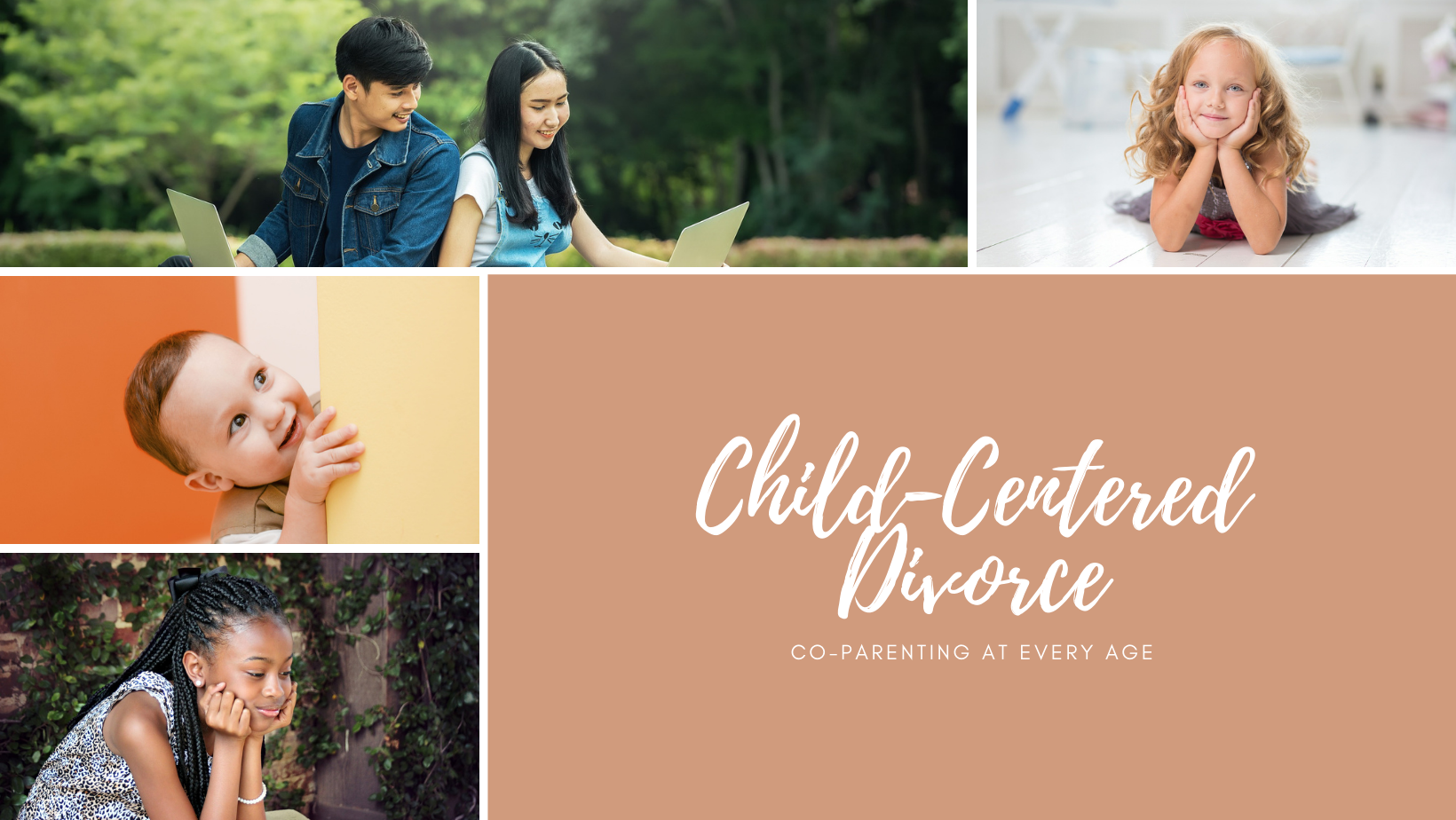What Does a Child-Centered Divorce Look Like?
The fact of the matter is that there is no “one-size” fits all for parenting plans or divorces that involve children.
However, all couples can strive to have a child-centered divorce by making sure that the children’s needs are put before personal agendas and that the children are kept completely isolated from any conflict between the parents, be it related to the divorce itself or specific co-parenting issues.
Once you bring kids into the world, it’s not about you anymore. ~ Haley Mott
When children are involved, the two main components of any divorce are 1) The Parenting Plan and 2) The Financial Matters. Many couples with children choose to start with the parenting plan, before proceeding to the financial matters of their divorce. (Find out more about this option with the DivorceTown Road Map). No matter how you begin the divorce process there are couple of very important factors to consider:
Parenting Plans should be age-appropriate and allow for growth and flexibility as children grow and mature. Not sure what your Parenting Plan should include? We recommend working with a parent expert and/or coordinator.
Parenting Plans should be reviewed by a Family Law Attorney familiar with local statutes. Sometimes parents agree to things that are legally or logistically impossible to enforce, which can cause a lot of unnecessary time, expense and frustration.
We recommend meeting with a divorce financial expert (such as a CDFA® and/or Financial Planner) to make sure you will be able to support any proposed financial obligations of your parenting plan.
Remember that no matter how well you plan, there will always be unexpected issues and situations. Kids are kids, they get sick, emergencies happen, sometimes they rebel and make it difficult to set or enforce proper boundaries. When this happens, empathy can go a long way. Try to put yourself in the place of your child and even your ex. If you were in that situation, how would you want you to react and respond?
You don’t have to always get along or agree. You are getting divorced for a reason, after all. The best you can do is your personal best for your children. Address any parenting issues that arise promptly and respectfully, just not around the kids. Don’t bad mouth your ex to your children or confide unnecessary details of your divorce with them. They shouldn’t be bearing your burdens and should always feel loved and welcomed in both homes. Foster their relationship with the other parent, don’t discourage it.*
Co-parenting successfully is not easy. You may find yourself in a high-conflict situation or have an ex that never complies with agreements or court mandates. In these types of situations, we encourage you to utilize parenting coordinators and/or software and technology specifically designed for these types of situations, like Our Family Wizard (availble at the DivorceTown USA Marketplace) or one of our trusted parenting experts at DivorceTownUSA®.
